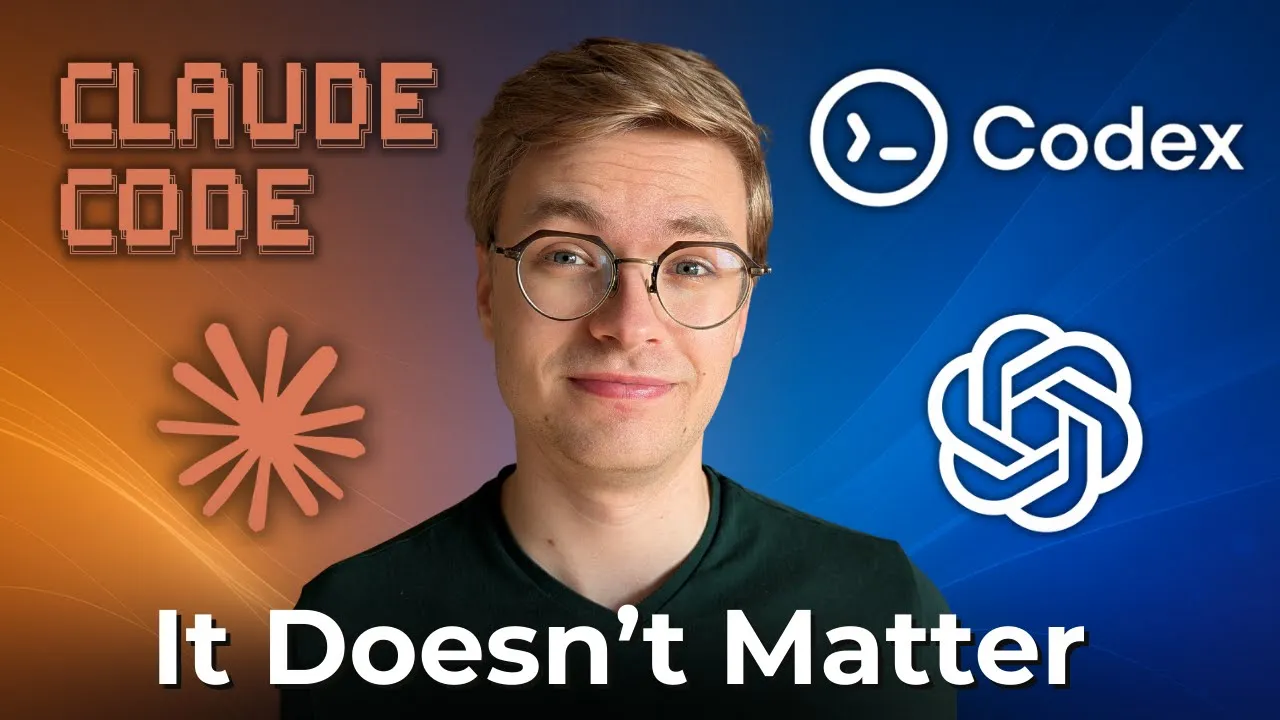Claude vs Codex - Which AI Coding Tool Actually Wins
You’ve probably seen the heated Claude vs Codex debates online. Developers posting side-by-side screenshots, arguing about which tool generates cleaner code, accusing each other of bias. After implementing AI solutions at scale in big tech, I can tell you something counterintuitive: picking between Claude and Codex based on these comparisons is setting yourself up for disappointment.
The Claude vs Codex Comparison Trap
When developers compare Claude against Codex, they’re usually running a single test with one prompt and declaring a winner. This approach fundamentally misunderstands how these AI systems work.
I’ve watched teams switch from Claude to Codex (or vice versa) expecting dramatic improvements, only to discover their productivity remained flat or even decreased. The reason? They were solving the wrong problem.
Claude and Codex aren’t static tools with fixed capabilities. They’re probabilistic systems that behave differently based on countless variables: your codebase structure, the specific programming language you’re using, how you phrase your prompts, even the time of day can influence API performance.
Why Model Architecture Makes Direct Comparison Impossible
Claude runs on Anthropic’s architecture while Codex uses OpenAI’s infrastructure. These aren’t just different brands of the same product, they’re fundamentally different approaches to understanding and generating code.
Claude tends to be more conversational and context-aware, often asking clarifying questions before proceeding. Codex typically jumps straight into code generation with less back-and-forth. Neither approach is inherently superior, they serve different workflow preferences.
The non-deterministic nature of these models means you could run the same prompt through Claude five times and get five different solutions. The same applies to Codex. This variability isn’t a bug, it’s how large language models explore solution spaces. Judging either tool based on a single output is like judging a restaurant by one randomly selected dish.
What Really Determines Your Success
Through my journey from self-taught programmer to senior AI engineer, I’ve learned that tool selection matters far less than tool mastery. The developers getting 10x productivity gains aren’t the ones using the “best” tool, they’re the ones who’ve invested time understanding their chosen tool’s patterns.
When I work with Claude, I know exactly how to structure my prompts to get architectural discussions before implementation. With Codex, I understand how to leverage its code completion strengths for rapid prototyping. This deep familiarity only comes from consistent usage, not from switching tools every time a comparison video suggests something better.
Your existing development skills matter more than your AI tool choice. Neither Claude nor Codex can replace understanding of system design, debugging strategies, or performance optimization. They amplify existing expertise rather than creating it from scratch.
The Strategic Approach to Claude and Codex
Instead of asking “Is Claude better than Codex?”, ask yourself: Which tool integrates better with my current workflow? What are my actual pain points in development? Am I looking for conversational assistance or rapid code generation?
If you’re building complex systems that require extensive planning, Claude’s conversational approach might align better with your needs. If you’re doing rapid prototyping with well-defined patterns, Codex’s direct generation style could be more efficient.
The real productivity gains come from picking one and committing to mastery. I’ve seen developers waste months evaluating tools when they could have been building expertise. That expertise compounds over time, creating productivity gains that dwarf any marginal differences between tools.
Moving Beyond Tool Comparison
The Claude vs Codex debate distracts from what actually matters: building production-ready systems that deliver business value. Companies don’t care which AI tool you used, they care about the quality, reliability, and maintainability of your code.
Focus on understanding prompt engineering principles that work across any AI system. Learn to decompose complex problems into AI-friendly chunks. Build debugging skills that let you fix AI-generated code when it inevitably breaks. These skills transfer between tools and remain valuable regardless of which company wins the AI race.
The most successful AI engineers I know picked their tool based on practical factors like pricing, API stability, and integration options, then invested heavily in mastery. They’re not reading comparison articles, they’re shipping products.
Remember, every hour spent comparing Claude and Codex is an hour not spent building expertise with either. The gap between surface-level usage and deep mastery is where the real productivity gains hide. Choose based on your immediate needs, commit to learning, and revisit your choice only when you’ve exhausted your current tool’s potential.
To see exactly how to implement these concepts in practice, watch the full video tutorial on YouTube. I walk through each step in detail and show you the technical aspects not covered in this post. If you’re interested in learning more about AI engineering, join the AI Engineering community where we share insights, resources, and support for your learning journey.
